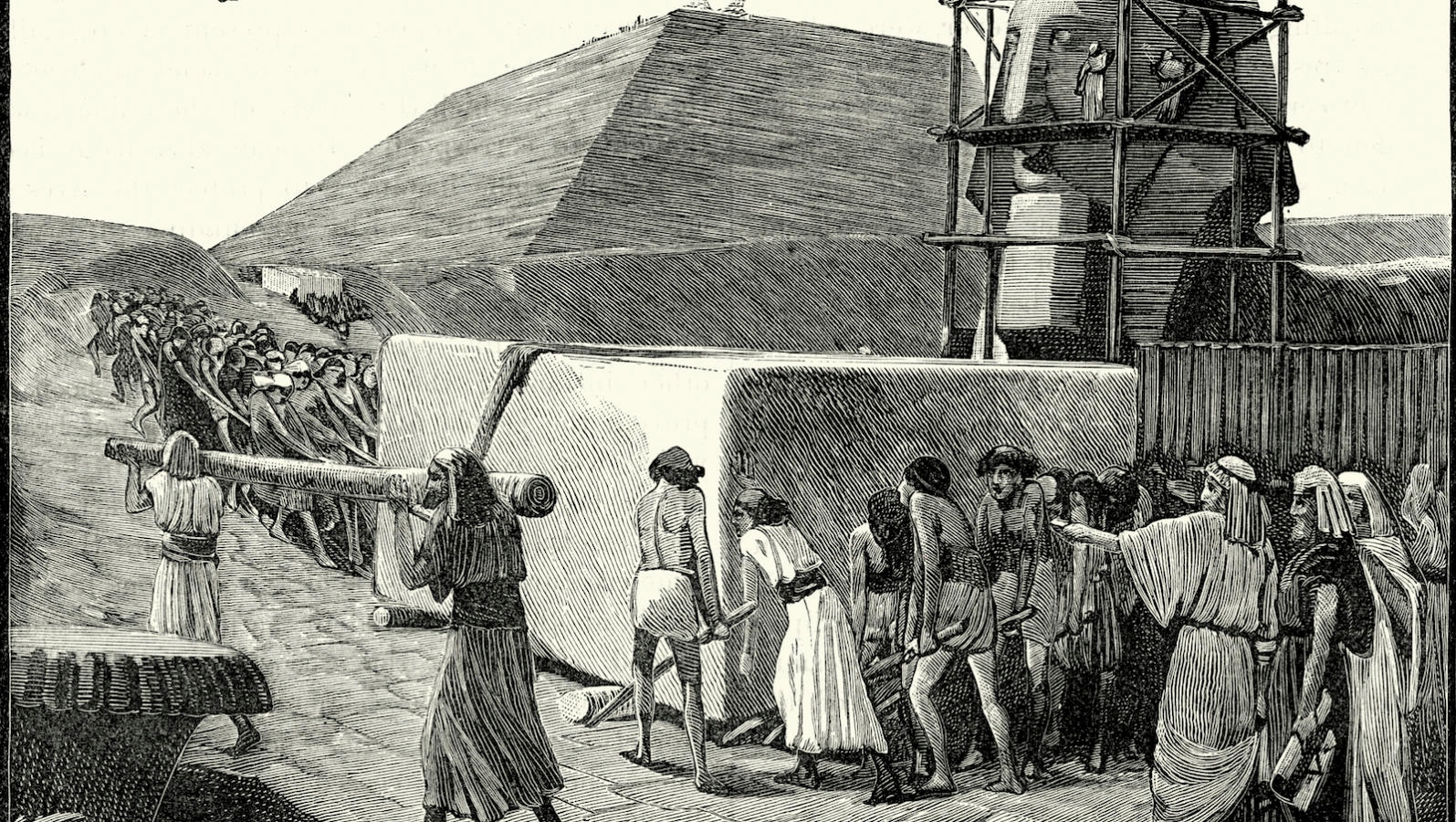Many readers of the Torah are shocked and disturbed when they discover its seemingly approving references to slavery.
Yes. The Torah recognizes the existence of slaves, and legislates some aspect of their treatment. We even hear about a few individual slaves, including Eliezer (Abraham’s servant), and the handmaidens Bilhah and Zilpah, who give birth to several of Jacob’s sons.
In fact, some slaveholders in the American South — and even some rabbis of the time — referred to biblical laws of slavery as justification for the practice.
For those of us committed both to Torah and to ending slavery (which continues to be a global problem today), this can be a little hard to take.
With your help, My Jewish Learning can provide endless opportunities for learning, connection and discovery.
There are a few ways to make sense of biblical slavery. First, we need to distinguish between the Torah’s two categories of slaves: the Eved K’naani (non-Jewish slave) and the Eved Ivri (Jewish slave). The former refers to slaves who remain so for a lifetime; the latter refers to indentured servants trying to pay off a debt or raise money for their families. The Eved Ivri works for a set period of time, and then goes free. With today’s ethical sensibilities, it is easy to argue that we must extend the protections mandated for Jews to include all of humanity, as Rabbi Jill Jacobs does in There Shall Be No Needy: Pursuing Social Justice Through Jewish Law and Tradition.
We could simply respond that slavery was a cultural norm in the Bible’s time period, but times have changed. Perhaps the Torah, with its mandated release of Jewish slaves, and protections for all slaves (for example, by granting a day off on Shabbat) even improves upon the usual conditions of slaves.
Jacob Milgrom, in Leviticus 23-27: The Anchor Yale Bible Commentaries, goes even further, suggesting that the Torah actually tries to make enslaving others difficult, if not impossible. He writes, “For Israelites, both kinds of slavery, chattel and debt, are prohibited.” In other words, no Jew may own another person, and strict constraints limit how long a person may be held as an indentured servant before the debt is paid off. This is especially relevant today, when debt-bondage continues to be a major form of slavery.
Milgrom’s analysis centers on Leviticus 25, where in verse 42 God says, “For they are My servants, whom I freed from the land of Egypt; they may not give themselves over into servitude.” The Talmud uses this same verse as evidence to say that workers always have the right to quit—i.e., they cannot be forced to work beyond the span they wish to (Bava Metzia 77a).
It is also relevant to note that later rabbis eliminated the category of the Eved Ivri. Rabbi Shimon ben Tzemach Duran, the 14th-15th century Spanish and North African authority known as the Tashbetz, ruled that this legal category ceased to exist after the exile of the 10 northern tribes of Israel:
Today, when the Jubilee [a year in which all debts were to be forgiven] is not in effect, in the case of one who loses all of his possessions, the Torah does not give this person permission to sell him or herself such that he would be like a Hebrew slave—that is, that his body should be acquired by another. Rather, this person should hire himself out as a worker, and if this person has hired himself out—even though he is called “servant,” he has not been acquired at all, and may quit even in the middle of the agreed-upon time, as it says “For the children of Israel are my servants”—and not servants to servants. If a person borrowed money, he carries this debt, but his body has not been acquired at all by the lender. Rather, he should pay back the loan when he is able, or he may pay it back with labor—taking out of his earnings enough to pay for his own food, but not enough for food for his household. (Tashbetz 2:27)
We should remember too that Jews have always read the Torah through a rabbinic interpretive lens and not simply on the plain meaning of its words.
Regarding non-Jewish slaves, Rabbi Samson Raphael Hirsch, the 19th-century German scholar often identified as the father of Modern Orthodoxy, in his Torah commentary offers the following comment on the case in Deuteronomy 23:16-17 of a non-Jewish slave who flees his master:
The Israelite authorities are obligated to extend to such a slave their patronage and concern, and according to Maimonides’ system (Laws of Slaves 8:10), which is affirmed in the Shulchan Aruch (Yoreh De’ah 167:85), they must bring about the freeing of the slave, and towards this purpose they must offer the owner these options: either he writes the slave a bill of manumission and accepts in return an IOU for the slave’s monetary worth, or if he refuses the court will annul the enslavement and the slave will go free. (Translation by Meirowitz Nelson, from Hebrew text in a 1989 publication of Hirsch’s commentary)
In other words, the slaveholder loses ownership of the slave either way; the choice he has is whether to comply with the court’s order, in which case he is compensated for the money he invested in the slave to begin with, or to resist, in which case he loses everything. Either way, Hirsch makes clear that owning slaves — even non-Jewish ones — is not acceptable.
One last approach is to follow Nahmanides’ reading of Deuteronomy 6:18, “And you shall do that which is right and good in the eyes of God.” Nahmanides reads this seemingly extra commandment as an injunction not to become a naval birshut ha-Torah — a degenerate with the permission of the Torah. That is, in addition to the specific commandments enumerated in the Torah, there is also a blanket rule — don’t think there are loopholes that you can exploit to be cruel. Surely today, turning our backs on slaves because the Torah allows slavery would be an act of moral degeneracy.
Excerpted with permission from T’ruah’s “Fighting Modern-Day Slavery,” available as a free download at truah.org/slaveryhandbook. T’ruah: The Rabbinic Call for Human Rights brings rabbis and cantors from all streams of Judaism, together with all members of the Jewish community, to act on the Jewish imperative to respect and advance the human rights of all people.
Talmud
Pronounced: TALL-mud, Origin: Hebrew, the set of teachings and commentaries on the Torah that form the basis for Jewish law. Comprised of the Mishnah and the Gemara, it contains the opinions of thousands of rabbis from different periods in Jewish history.
Torah
Pronunced: TORE-uh, Origin: Hebrew, the Five Books of Moses.



